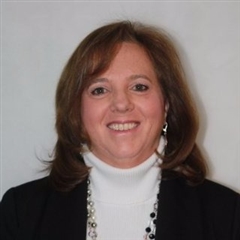5 Questions with Pamela Elser, Memorial Hospital Neuroscience Service Line Director
 Pam Elser has been a nurse for thirty years with 25 years experience in neuroscience nursing, starting her neuroscience career at UCLA as a bedside neuro critical care nurse. After moving to Colorado in 1998, she branched out of bedside nursing and began her career in program development for neurosciences. She received her MBA in 2012. Pam joined UCHealth in 2016 as the neuroscience service line director and helped lead the team through comprehensive stroke certification.
Pam Elser has been a nurse for thirty years with 25 years experience in neuroscience nursing, starting her neuroscience career at UCLA as a bedside neuro critical care nurse. After moving to Colorado in 1998, she branched out of bedside nursing and began her career in program development for neurosciences. She received her MBA in 2012. Pam joined UCHealth in 2016 as the neuroscience service line director and helped lead the team through comprehensive stroke certification.
1. What was your journey like to get where you are now?
As I continued to grow in my career, I recognized that the true essence of my passion was to impact neurosciences on a broader scale so people could receive the high-quality care for these complex disease processes.
I wanted to advance my knowledge in the business side and went back to school to earn my MBA in 2012. I was offered an opportunity to advance my career in Southern Colorado by developing neuroscience programs for a region previously under-served for this specialty service.
My career has been filled with incredible opportunities to learn and grow as an individual, a leader and a nurse. It has been exciting and there is more still to come. Impacting lives is something I went into nursing to do, not necessarily understanding the full scope of what that meant. To look back at the lives I have impacted through behind- the-scenes developing programs is something I am very proud of.
2. What is one characteristic that you believe every leader should possess?
It is very important to forge lasting relationships and partner with others. Personal relationships lead to honesty and trust, which leads to cooperation when difficult decisions need to be made.
3. What do you wish people knew about your program?
Patients in southern Colorado did not have access to some treatments primarily due to travel times to Denver to receive this care. Our comprehensive program is the first, and only, program in southern Colorado that offers advanced stroke treatments. We can help more people by delivering this care closer to home, avoiding delays, which leads to better outcomes. People no longer need to travel for expertise in neurological care.
4. What did you learn from your dad?
He approached life in an analytical way and taught me that all struggles are temporary. He often said, “This too shall pass” and “what can you learn from it?”. He always insisted on “thinking outside the box” and “there are more ways than one to solve a problem.”
5. What is your favorite hobby?
My favorite hobby is playing poker. The game itself is centered around making decisions in the moment based on imperfect and limited information. It often involves sitting with total strangers and observing people to determine the best strategy to win or in some cases, step away from a hand.